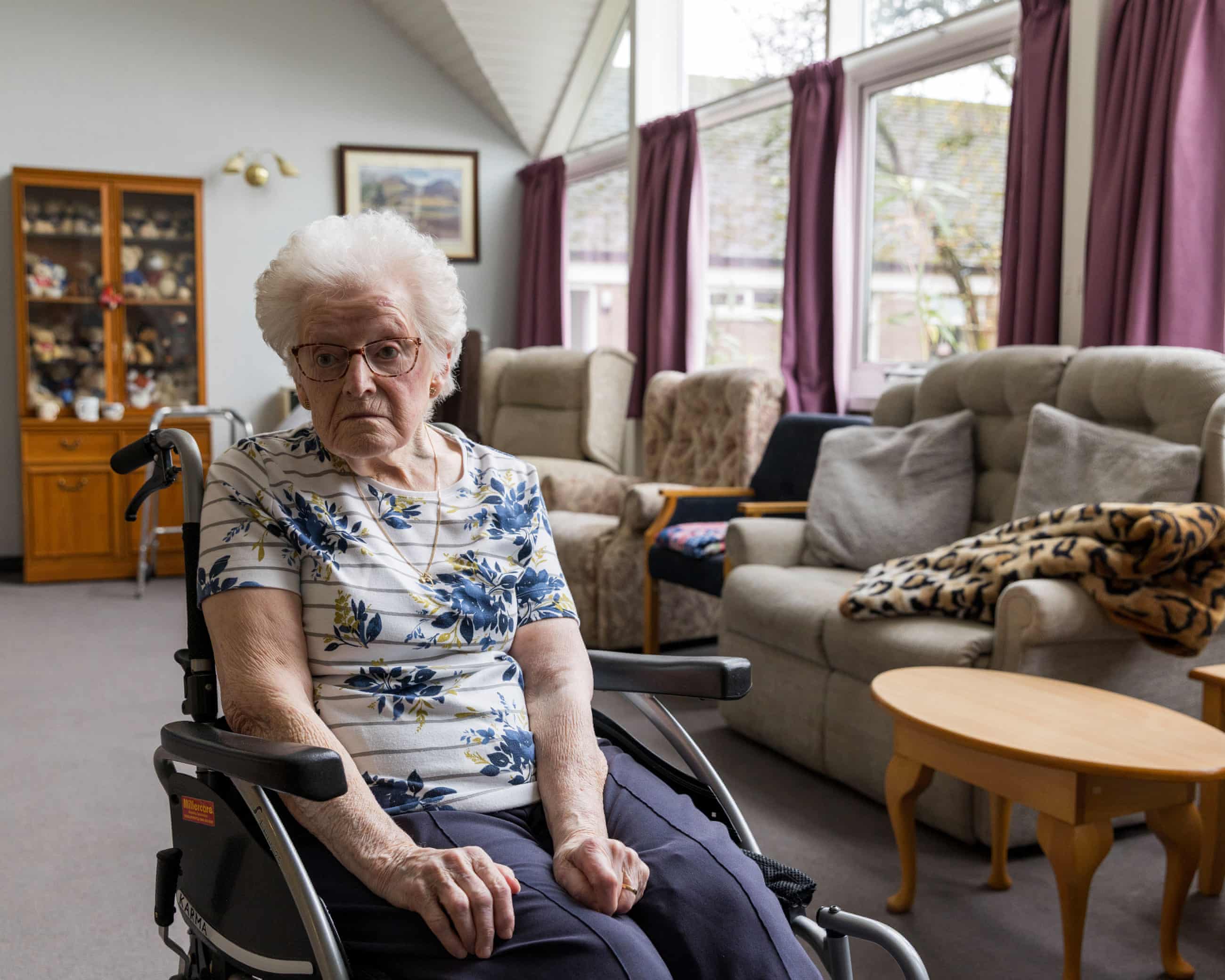Children in care who lash out may no longer face automatic arrest under UK review

Vulnerable young people in care who assault staff or damage property will not automatically be arrested by police or charged, under proposals intended to reduce the excessive criminalisation of looked-after children.A government review will examine how children in state care who exhibit challenging behaviour can be offered targeted support such as trauma counselling rather than being punished through the criminal justice system.The aim is to restrict the “over-policing” of looked-after young people and reduce disproportionate numbers who offend while in care.Children in care are 10 times as likely to receive a caution or conviction than those not in care.The review, expected to report in the spring, aims to tighten an existing protocol introduced by the previous government in 2018.
The protocal said police should not be used for what it called “low-level behaviour management or matters a reasonable parent would not have called the police over”,David Lammy, the deputy prime minister, said: “Strengthening the protocol will mean these children are treated as children, rather than criminals,Ensuring they get proper help and support means we can change the path they’re on, stop them turning to lives of crime and give them a more positive future,The children’s commissioner for England, Rachel de Souza, said her office regularly saw cases where traumatised children taken into care after being exploited, abused or groomed by adults subsequently found themselves subjected to heavy-handed criminal punishment and retribution rather than care and support,She said: “Children with complex needs or disabilities whose behaviours require significant care from expert professionals, are criminalised for lashing out and damaging property.
My case workers tell me time and time again about instances of children’s homes calling the police because a child breaks something.“For any other child, these would not be ‘incidents’ documented in writing.There would be no report, no police involvement.They would usually be handled by parents or other caregivers in private, where children are allowed to be children.”In one case cited by de Souza, Jimmy, a boy with autism and significant emotional and behavioural difficulties, was effectively contained in an illegal children’s home under 24-hour supervision, unable to play outside or go to school.
“One day Jimmy threw something that hit one of these staff members.They were not seriously injured but the police were called.Jimmy was charged and then convicted.He, a disabled child, had to pay a fine.”Sign up to First EditionOur morning email breaks down the key stories of the day, telling you what’s happening and why it mattersafter newsletter promotionResearch published by the children’s commissioner on Monday found that children in care were more likely than those not in care to commit an offence of common assault and battery, or criminal damage under the value of £5,000, or assaulting a police office.
They were less likely to commit drug or knife offences,The research said that while it was impossible to generalise about the nature of the offences, it was notable that many of the incidents such as violence towards carers and damage to homes “get a police response which would not happen in a family home, which can in turn escalate to violence towards those police officers”,It adds: “This analysis of first offences of children appears to support the idea that for many children who come into care, they are being brought into the criminal justice system by the very people who should be protecting them from it,”

Plastic surgeons wrestle with requests for ‘Mar-a-Lago face’: ‘You’re going to look like Maleficent’
The puffy, artificial look is rising in popularity - thanks to Maga elite such as Kristi Noem and Matt GaetzPicture a plastic surgeon’s office. You might imagine a sleek Los Angeles practice, with discreet entrances meant to conceal celebrities from the paparazzi. Maybe a Dallas high-rise, where monied housewives spend on postpartum “mommy makeovers”. Or a Miami location, where influencers and OnlyFans stars film TikToks of their BBLs. One city you might not think of is Washington DC

‘I knew I was starting to have a seizure’: women describe lasting effects of being ‘choked’ during sex
When Sophie* woke up on the floor after having a seizure, it took a while before she could comprehend that it had been caused by a man strangling her during sex.“I blacked out, my legs were kicking, I broke a glass,” she says. At 19, it was the first and only time anything like that had happened to her. “When I came to, I couldn’t work out who he was, where I was, what was going on. And it was utterly terrifying

Nearly half of sexually active young people in UK have experienced strangulation, study shows
More than two in five sexually active under-18s in the UK have either been strangled or strangled someone during sex, research has found, despite the serious dangers of the practice.“Choking”, as it is commonly known, has become normalised in young people’s sexual habits, the study by the Institute for Addressing Strangulation (Ifas) showed, with 43% of sexually active 16- and 17-year-olds having experienced it.More than half of people under the age of 35 have experienced it, with nearly a third wrongly believing there are safe ways to strangle someone.The survey also revealed a crisis of distress among those on the receiving end, with 36% saying they felt scared during the experience and 21% suffering dangerous physical symptoms, including dizziness and even loss of consciousness.It also showed a consent gap, with more perpetrators of strangulation believing their partner had consented to it in advance than those who had experienced it, with 1% saying they had explicitly not agreed to it the last time it happened

Children in care who lash out may no longer face automatic arrest under UK review
Vulnerable young people in care who assault staff or damage property will not automatically be arrested by police or charged, under proposals intended to reduce the excessive criminalisation of looked-after children.A government review will examine how children in state care who exhibit challenging behaviour can be offered targeted support such as trauma counselling rather than being punished through the criminal justice system.The aim is to restrict the “over-policing” of looked-after young people and reduce disproportionate numbers who offend while in care. Children in care are 10 times as likely to receive a caution or conviction than those not in care.The review, expected to report in the spring, aims to tighten an existing protocol introduced by the previous government in 2018

Woman killed herself after south London hospital neglect, coroner concludes
A woman killed herself after a south London psychiatric unit failed to search her possessions adequately, a coroner has concluded.Michelle Sparman, a personal trainer and call dispatcher for the Metropolitan police from Battersea, south-west London, died on 28 August 2021 at Kingston hospital, four days after trying to take her own life.The assistant coroner, Bernard Richmond KC, concluded that Sparman, 48, died of a hypoxic brain injury, determining she had died by “suicide whilst the balance of her mind was disturbed, contributed to by neglect”.He determined four probable causes of death: her struggles with anxiety and depression, including impulsiveness; a “difficult relationship” with her ex-partner, including “intemperate and excessive texting” from him, which called into question her mental health and fitness to be a mother; her “justifiable feelings of abuse” as a result of his behaviour, and inadequate searching on leaving and entering Rose Ward, a locked 20-bed female-only mental health unit at Queen Mary’s hospital in Roehampton.He cited her perimenopausal symptoms and financial and professional problems as possible causes

‘It’s cruel’: relatives of residents react to proposal to close Lancashire care homes
Elderly residents of care home left anxious after Reform-led county council started consultation over plans for its closureFor Marjorie Aspden, 95, Woodlands care home in Clayton-le-Moors in Accrington was the perfect place to spend her twilight years. When she looked out from the window of her room, she saw the woods that she played in as a young girl and felt a sense of contentment.Now she and hundreds of other elderly residents are facing uncertainty after the Reform-led Lancashire county council announced it would consult on plans to close care homes in the area.Last month it began a consultation on moving residents out of five local authority care homes and day centres into other premises. The consultation closes in mid-December and the cabinet will make a final decision on the closures in February

Starmer pleads for government to unite in fightback after difficult week

‘Deeply shocking’: Nigel Farage faces fresh claims of racism and antisemitism at school

Most Reform UK voters would back wealth tax on very rich, poll suggests

Reform would ‘cut benefits for EU nationals and hike NHS immigration surcharge’

Reform MP invites Mahmood to join his party, saying he ‘welcomes’ and ‘recognises’ her rhetoric – as it happened

Shabana Mahmood puts the signs up: Britain is full. No blacks, no dogs, no Irish